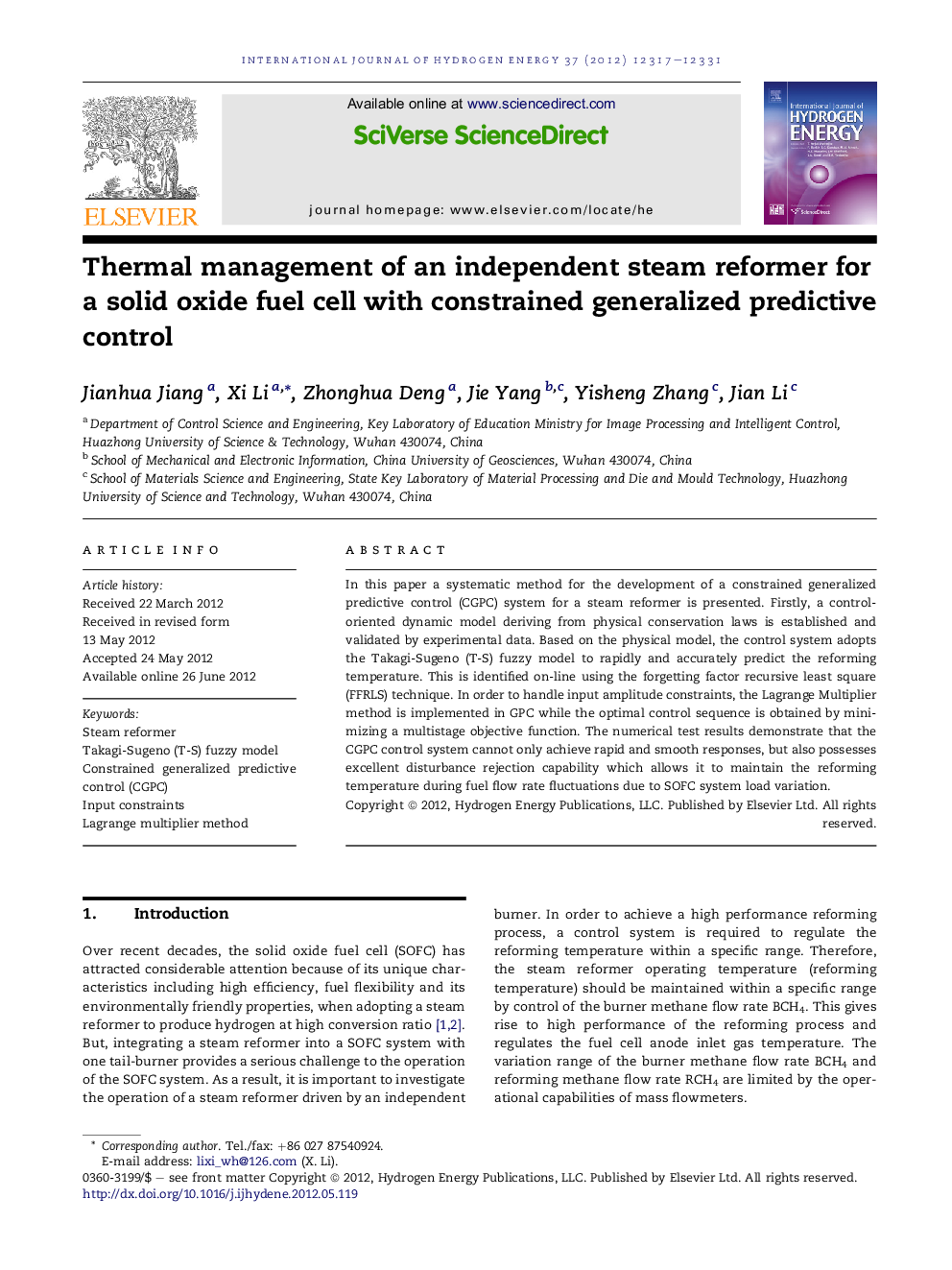| Article ID | Journal | Published Year | Pages | File Type |
|---|---|---|---|---|
| 1271067 | International Journal of Hydrogen Energy | 2012 | 15 Pages |
In this paper a systematic method for the development of a constrained generalized predictive control (CGPC) system for a steam reformer is presented. Firstly, a control-oriented dynamic model deriving from physical conservation laws is established and validated by experimental data. Based on the physical model, the control system adopts the Takagi-Sugeno (T-S) fuzzy model to rapidly and accurately predict the reforming temperature. This is identified on-line using the forgetting factor recursive least square (FFRLS) technique. In order to handle input amplitude constraints, the Lagrange Multiplier method is implemented in GPC while the optimal control sequence is obtained by minimizing a multistage objective function. The numerical test results demonstrate that the CGPC control system cannot only achieve rapid and smooth responses, but also possesses excellent disturbance rejection capability which allows it to maintain the reforming temperature during fuel flow rate fluctuations due to SOFC system load variation.
► A GPC is designed based on the T-S fuzzy model considering the input constraints. ► The novel GPC is developed for the thermal management of a steam reformer. ► The success in controlling the separate reformer gives a promise for controlling the integrated system.
